Europe is running out of time to find alternatives to Russian gas
Europe is running out of time to find alternatives to Russian gas
Analysis by Anna Cooban, CNN Business
Updated 1628 GMT (0028 HKT) May 12, 2022
London (CNN Business)The security of Europe's energy supplies is looking shakier by the day.
Just 24 hours after Ukraine reduced the flow of natural gas across its territory into Europe, blaming interference by Russian troops, Gazprom suspended supplies through the Yamal-Europe pipeline running across Poland, and stopped sending gas to a distributor in Germany.
While the volumes affected are small, in total accounting for just a few percent of Europe's overall gas consumption, each knock to supplies underscores the region's vulnerability — and the urgent need for the European Union to untangle itself from Russia's vast energy reserves.
"Now we start to see these different issues coming up, this is an illustration of why Europe should not take gas supplies for granted," Simone Tagliapietra, a senior fellow at think tank Bruegel, told CNN Business. "Governments need to act now as if they are in an emergency situation," he added.
Russia imposed sanctions on 31 foreign companies on Wednesday, according to state news agency RIA Novosti. Gazprom Germania and EuRoPol Gaz, the operator of the Polish section of the Yamal-Europe pipeline, were on the list.
"There will be no relations with these companies, they are simply prohibited," Kremlin spokesperson Dmitry Peskov said Thursday.
German Economy Minister Robert Habeck — whose country is a major buyer of Russian gas — said that Russia was no longer supplying the subsidiaries of Gazprom Germania, but that alternative supplies had been secured.
Futures prices for Dutch natural gas, the European benchmark, briefly spiked 14% on Thursday morning, but have since fallen back down, according to data from the Intercontinental Exchange.
The developments show an increasing boldness by Russia to disrupt its energy exports to Europe.
Last month, Moscow turned off the taps to Poland and Bulgaria, making good on President Vladimir Putin's promise to halt gas flows to "unfriendly" countries refusing to pay their bills in rubles, rather than the euros or dollars stated in their contracts.
Russia accounted for about 45% of Europe's total gas imports in 2021. The European Union is proposing to slash its consumption of Russian gas by 66% by the end of the year, but it has yet to present a detailed plan on how to achieve that.
Ukraine turns down the taps
Even as the war has raged for more than two months, gas from Russia had continued to flow westward, much of it via pipelines in Ukraine. But late Tuesday, Ukraine's gas transmission system operator said it had suspended gas shipments through its Sokhranivka transit point, which processes as much as 32.6 million cubic meters per day. That's about a third of Russia's gas flowing through Ukraine to Europe.
The Ukrainian operator blamed "interference by the occupying forces" in announcing the route's suspension. It accused Russian forces of tampering with the transit point and siphoning off gas. As a result, the operator said the "stability and safety of the entire Ukrainian gas transportation" had been compromised, and it was forced suspend gas flows.
It wasn't clear when gas flows through Sokhranivka would resume.
The broader impact has so far been limited. While Ukraine transports in total about 30% of Russia's gas supply to Europe, according to the Independent Commodity Intelligence Services, the pipeline affected accounts for just 2.3% of Europe's overall gas supply.
The modest market reaction was largely thanks to healthy gas storage levels, mild weather and a record volume of liquefied natural gas imports into Europe last month, said Tom Marzec-Manser, head of gas analytics at ICIS.
"The market is actually pretty well supplied at the moment, all things considered," he said.
But the shutdown raises the uncomfortable prospect of further disruptions to Europe's gas supply as the fighting continues. The consequences could rattle markets and send already-elevated energy prices even higher.
Redirecting gas flows
The Sokhranivka shut-off creates a shortage of 16 million cubic meters a day, said Kateryna Filippenko, principal analyst for global gas supply at Wood Mackenzie. But "there is enough physical capacity to fully compensate for this disruption," she told CNN Business.
Ukraine's gas operator said it could ramp up gas volumes at another transit point, called Sudzha, which is located farther west in territory the Ukrainian government controls.
https://edition.cnn.com/2022/05/12/energy/russian-gas-ukraine-europe/index.html
-
 7:36
7:36
Patrick Lancaster News Today
1 year agoRussia Fires BM-27 "Uragan" Rockets On Kharkiv Ukraine
4635 -
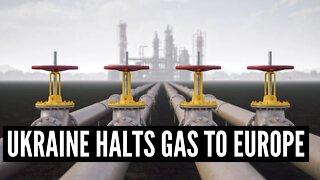 9:45
9:45
Foreign Agent Intel
2 years ago $0.07 earnedUkraine HALTS Europe-bound gas - Inside Russia Report
1733 -
 0:26
0:26
Gen Z News
1 year agoEurope's import of Russian gas jumps 42% in 2022 amid Ukraine war: Report | #shorts #news
3 -
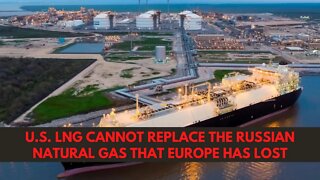 2:38
2:38
RADAR ID
1 year agoUS LNG Cannot Replace The Russian Natural Gas That Europe Has Lost
54 -
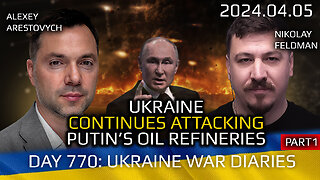 52:05
52:05
PrivateerStation: Ukraine War Chronicles
26 days agoWar in Ukraine, Analytics. Day 770: Ukraine Continues to Hit Putin's Refineries. (part1)
87 -
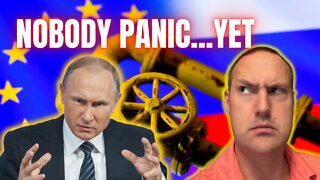 5:41
5:41
Nobody Special Finance
1 year agoEurope Holds Breath as Russia Turns off Gas For Maintenance
22 -
 5:44
5:44
Indicrat
1 year agoRussia Enjoying Full Grocery Stores & Cheap Gas - Sanctions Failing
67 -
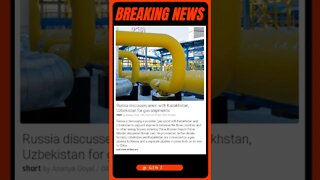 0:32
0:32
Gen Z News
1 year agoBreaking News | Russia discussing a gas union with Kazakhstan and Uzbekistan | #shorts #news
42 -
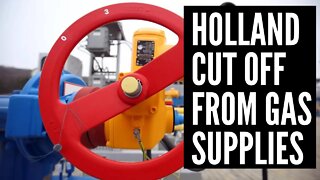 13:36
13:36
Foreign Agent Intel
1 year ago $0.07 earnedGazProm Confirms NO MORE GAS for Holland! 🤡 EU Buys Russian Bread! 🤡 - Inside Russia Report
2467 -
 12:10
12:10
The Money GPS
1 year ago $0.04 earnedRussia Turns Off the Gas? Let the Chaos Begin
1313